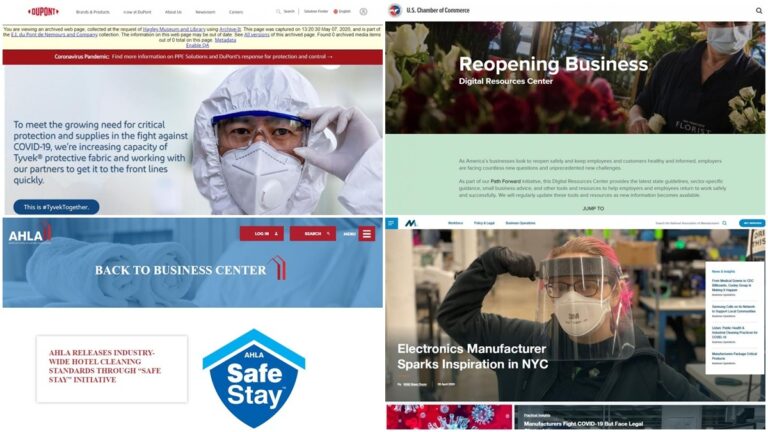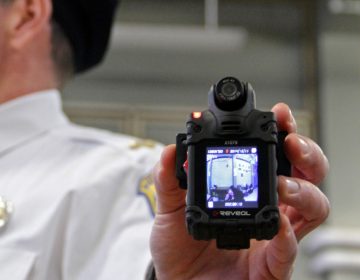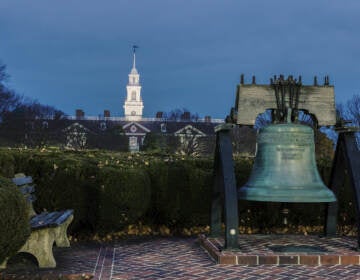Delaware group collects COVID-19 history for future research
The Hagley Library has collected more than a million online documents in an effort to preserve information about the response to COVID-19 for future historians.

These web pages are among a collection of sites now being archived by Hagley Museum and Library in Delaware in an effort to preserve documents about the response to COVID-19. (Courtesy of Hagley Museum and Library)
Are you on the front lines of the coronavirus? Help us report on the pandemic.
For decades, the Hagley Museum and Library in northern Delaware has stored and collected documents about business and technology in America. In 2013, the library started collecting documents from business and technology websites. Since that time, they’ve collected more than 43 million web documents and three terabytes of web content.
In April, researchers started a new effort to collect documents specifically related to the response to COVID-19. They’ve gathered more than a million documents and about 200 gigabytes of data.
“If this happened 30 years ago, I think a lot of this same information would have been distributed via paper,” said Kevin Martin, Mellon Curator of Audiovisual and Digital Collections at Hagley. But since the early 2000s, more and more companies and trade groups are publishing their guidelines and other material online, instead of on paper.
There’s a risk of all that information being lost for future historians and researchers if it’s not preserved. “Websites can’t keep accumulating forever, so at some point, they start over,” Martin said. “A lot of these companies, a lot of these trade organizations essentially clear the decks, and in some ways start over.”
Because of Hagley’s main focus on business and technology, the library has focused on capturing web pages from industry and trade groups including the airline industry, food producers and even the auto dealers association. They’re also capturing lots of information the U.S. Chamber of Commerce is sending to its members about small business loans and the effort to help little firms stay afloat.
“In some cases, they have first-hand accounts written by members about what’s going on, so these are really great places that we can focus in on,” he said. “You have to figure out ways where you’re going to find ideal collection points for this material, and that’s what we’re finding within the trade organizations.”
Hagley’s first round of coronavirus archiving was made in April and May. A second-round will run through July and August. Depending on how long the virus remains prevalent, more rounds of archive collection could be scheduled through the fall. Once the documents are collected, then the real work begins. “There’s a lot of work still to be done on our end to catalog it and process it so it’s discoverable to researchers,” Martin said.
Because of copyright concerns, the archived material won’t be made available online for some time.
“When it becomes history is when we will begin to make it available,” he said.

Get daily updates from WHYY News!
WHYY is your source for fact-based, in-depth journalism and information. As a nonprofit organization, we rely on financial support from readers like you. Please give today.



![CoronavirusPandemic_1024x512[1]](https://whyy.org/wp-content/uploads/2020/03/CoronavirusPandemic_1024x5121-300x150.jpg)


